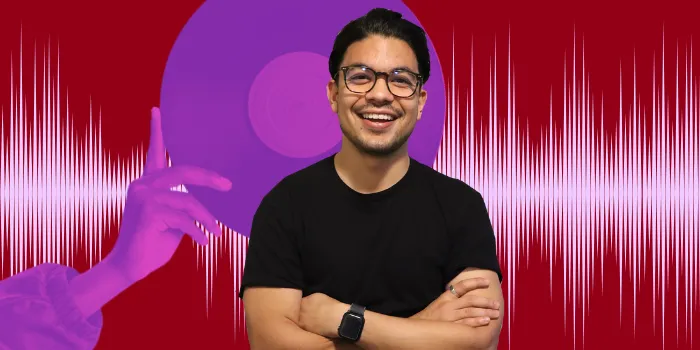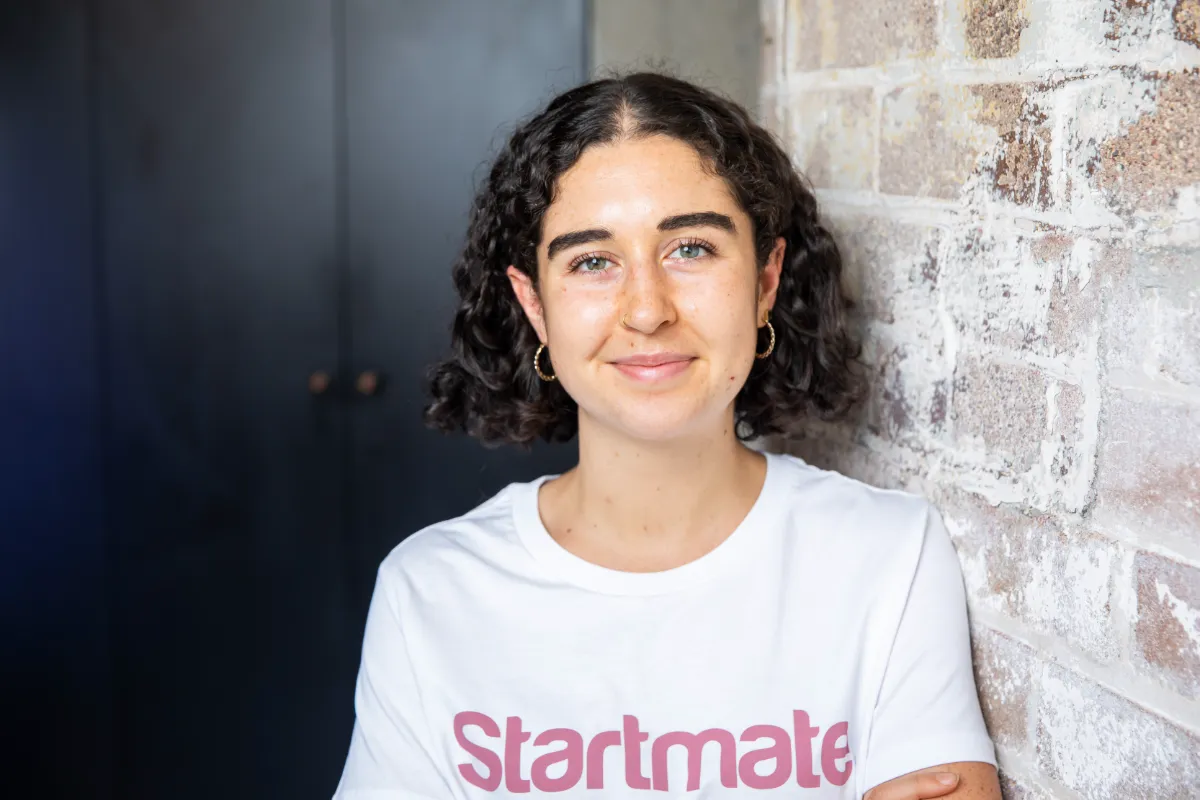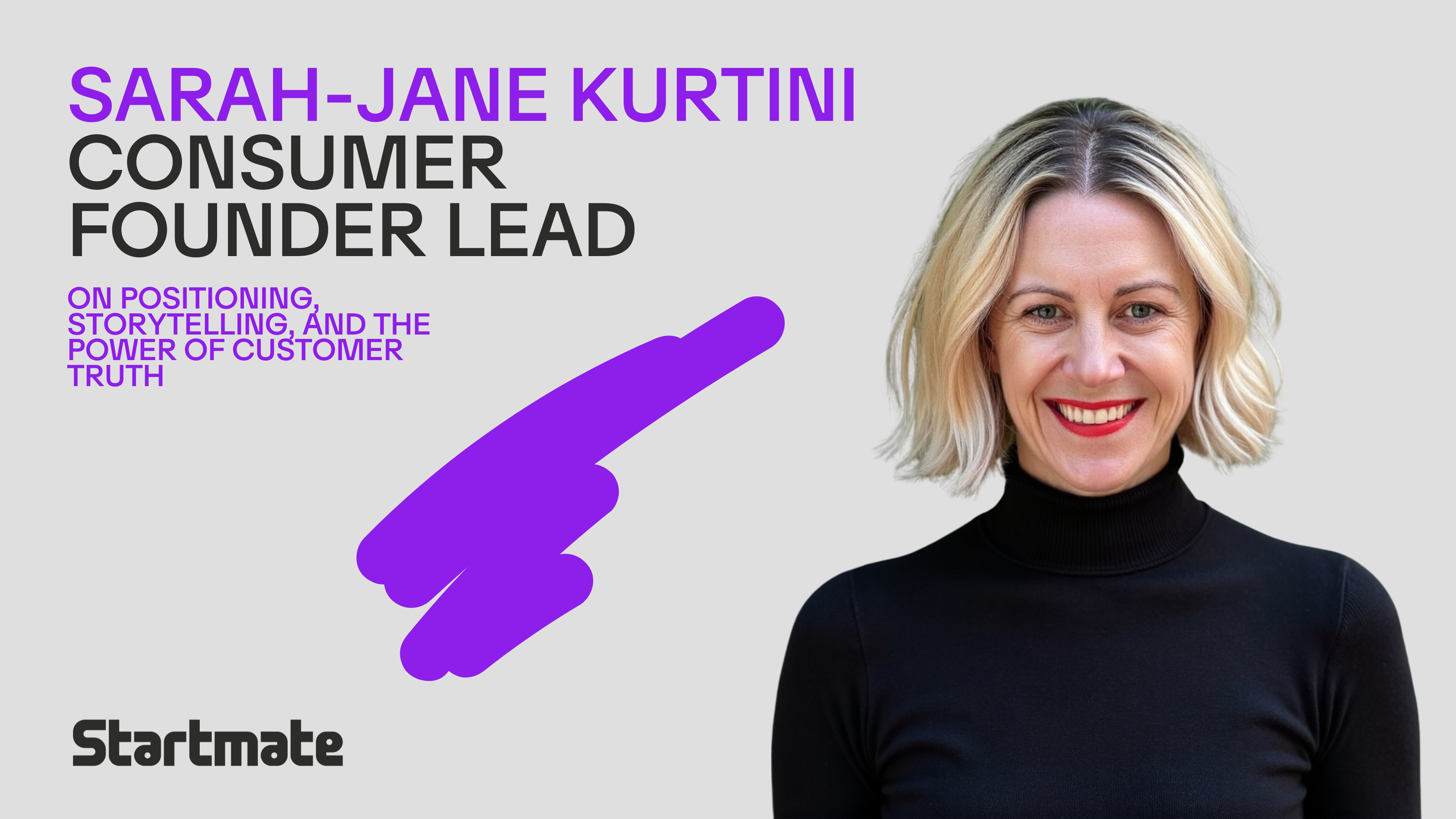Whether armed with a “bunch of qualifying questions”, an MVP, or the Taj Mahal of products, directly speaking with venue managers has been a constant throughout every stage of Muso’s growth.
Or, to put it another way, Muso co-founder Alan Jin has insight in spades when it comes to speaking with early-stage customers and generating early traction.
But I am jumping ahead of myself. Let’s set the scene.
The year is 2018 and Brandon Crimmins and Jeremiah Siemianow are walking up and down Chapel Street in South Yarra, entering venues one by one and speaking with managers, determined to see if a pain-point they’d identified was isolated or widespread.
If it was a movie, “Hustlin’” by Rick Ross would be playing.
Brandon was a venue manager at the time, and while he loved live music, he always struggled to book artists. He mentioned this to Jeremiah, who was working in real estate, and the pair pounded the pavement, speaking with 140 Melbourne venues in 7 days.
As it turns out, 139 of those venues had some form of live-music problem, whether it was finding a musician, communicating with them or facilitating the payment.
It’s at this point they recruited Alan, a musician who was working in marketing at Clemenger BBDO.
“They came to me and said: ‘Here are all these venues that have got all these problems. They want to find musicians’,” Alan tells me.
“And I was like, what are you talking about? Me and all my mates, we want to play gigs.
“And not only that, here are all these issues we have, whether it’s finding the gig, not getting communicated to about the problems on-the-ground … or not getting paid on time.
“It was at that point we decided there needed to be a simple conduit — a marketplace — that sits between those two sides of the market,” Alan says, and Muso was born.
“We soon learnt that the opportunity was much bigger than that, but that was the spark,” he reflects.
“We started working out of meeting rooms at universities we didn’t attend.
“We would just rock up to Deakin, sneak into the library, take a meeting room and sit there until we got kicked out. We did that for like six months, validating the problem, then when we knew we were onto something, we all decided to quit our jobs.
“We all had some savings. We bootstrapped the company. We moved into this sad office.
“Then, at one point we realised we needed to raise capital. At the time we didn’t even know what VCs were. So we did our research, and discovered a bunch of funds. We looked at the companies they had funded, reached out to the founders of those companies, set up coffees with them, impressed them, and then got them to introduce us to those funds.
“We got introed to Matt Allen. He introduced us to Startmate,” Alan says. And the rest is history.
So, without further ado, or noughties rap references, here are the five things Alan has learnt about early-stage customer acquisition since helping found Muso in 2018.
1. Don’t build the Taj Mahal
Allow me to paint a picture. Alan, Brandon and Jeremiah have moved into an office that’s really just the back part of a friend’s office, separated by a partition. There are large west-facing windows, and it’s the middle of summer. They have no air conditioning, so they have five fans on full blast, and they’re all working shirtless.
“It was just carnage,” says Alan.
And it was in this utterly imperfect office that the guys “were just building what we thought was the perfect product”.
“We defined nine reasons as to why an artist would cancel a gig. We spent three days working out those nine reasons and designing how they would be presented in the product. That’s how granular we got. It was ridiculous,” he says.
“You know the concept of lean development right? And agile? We were not doing that.
“We were building the Taj Mahal.”
When Muso got accepted into the Startmate Accelerator in 2018, they “were mid-build, and Startmate just put us in line, taught us what agile meant, and was like, ‘you guys did not need to build all of this’.
“In the first four weeks, we completely redesigned our product. We stripped out as much as possible, and just put it in front of people,” Alan says.
“And while we were doing that, Jeremiah was out in the streets of Sydney, acquiring clients in exactly the same way we did when we were proving the pain point”, he adds, proving you only need a bare-bones MVP in the early stages, when collecting feedback and testing validity.
2. Always have the conversation
Given the Muso team “would pick a geography and just walk around” pitching to venue managers in the early days, I simply had to ask how this worked. How do you go into a pub, cafe or bar, find the right person, and then sell them on an idea?
“You just have to consistently hit your head against the wall until you … discover what works”, Alan tells me, half-joking, I think.
“Zooming out, we have always been a team that’s not afraid to just have the conversation. It came from Jeremiah. His background is in real estate. They literally get grinded to knock on doors and have really uncomfortable conversations. So Jeremiah coached us on how to do that.
“We had a rule, which is ‘always have the conversation’. No matter what. Because you don’t know what’s on the other side.”
The guys broke this rule down into two core non-negotiables, Alan tells me.
- You have to speak to the venue manager of every venue you visit (or at least try to); and
- If you see a talented artist performing, you have to speak to them about Muso.
“This simple method unlocked so much value for us,” he explains.
“For example, speaking to someone at the back of a bar at a conference, who then unlocked the entire New Zealand market for us.
“Or, we were having dinner one day and Jeremiah went up to someone who he thought was the venue manager … That person happened to be the Groups Operation Manager of a 40-person venue group. We managed to acquire the entire group as a client.
“The conversation is non-negotiable, you don’t know what opportunity is on the other side.
“It never hurts to have it. Even if it doesn’t go the way you want it to, you’ll learn how not to do it,” Alan adds.
3. Tweak your pitch on the fly
Alan’s advice is to “always have the conversation”, but what does this conversation actually look like? Is it always the same conversation, or does it differ on a case-by-case basis?
The first step is always the same, Alan explains.
“You need to get to the decision-maker.
“You’d walk in, and you’d basically ask qualifying questions. Do you have live music here? Yes. Who is the best person here to speak to about live music? Cool.
“You identify who the decision-maker is, then you find a time to get in front of that person. Can I chat to the person now? They’re not here. When will they be here? You’d be writing down notes and you’d come back later. And then finally, you’d find time to sit down with this person,” he says.
It was at this point that the guys would tweak their scripts based on who they were speaking with.
“You usually pitched them on the spot. But we had different ways of doing it, based on the types of operators in the industry,” he explains.
“We had five wireframes … Some operators are really direct, so you’d have to mirror them and get to the point. And some of them are really airy and fluffy, and you can just have a bit of banter with them.”
But at the end of the day, while the delivery and tone might change, the questions remain the same.
“You need to identify a pain-point as quickly as possible,” Alan says.
“How do you organise live music? Oh, that sounds inefficient. Do you have problems with this part? No. Okay. What about this?
“And you’d go through this objection tree until you found one pain-point, and then you’d ask, if I could answer that pain-point, or a whole suite of pain-points, would that be of value to you? Then, you’d deliver a solution.
“Can I steal you for 10 minutes? I’ve got something really cool that I want to show you. It’s something we’re working on.
“You’d sit down and pitch the product. It’d just be five wireframes on an iPad.
“Then, we’d pass them an MOU, and explain it’s the lowest, legally binding document we could possibly get without locking them into anything, and ask them to sign it.
“And basically, that’s them saying they want to use it.
“That method generated so much learning and traction in the early days, it was priceless,” Alan adds.
4. Validate your idea beyond your bubble
It was in the AWS office kitchen, surrounded by employees eating their lunch, pitching to Matt Allen “under pressure”, that the Muso founders learnt an interesting lesson, and were presented with a challenge they couldn’t walk away from.
“We’re pitching, we’re pitching, we’re pitching,” he says.
“And we got to this slide, which was basically all the venues that we’d gotten an MOU from. We went to Matt Allen with about 40 or 60 of those.”
“He lent forward and said: ‘Guys, this is great. But you’re from Melbourne. How am I meant to know these aren’t people you know. Go to another city, go somewhere else, and do this there. And then come back to me.’”
And this marked the point where Alan, Brandon and Jeremiah’s customer acquisition strategy went global.
“I think he thought he would just never see us again,” Alan says.
“But putting a challenge in front of us is just not a great idea. Cause we’ll do it.
“The next day, Jeremiah and Brandon flew to Sydney, and got 60 MOUs. Jeremiah then flew to Auckland and got 30 MOUs.
“I already had tickets to the UK … for a holiday with my girlfriend. So between dinners, I’d be walking up to venue managers in London and Brighton and Edinburgh.
“We were all using the same technique and reporting our learnings back to each other.
“Then we came back to Matt, and he was like: ‘How’d you guys go?’
“And we just slapped the MOUs on the table and said: ‘Here’s Sydney, New Zealand, London, Brighton, Edinburgh, all signing MOUs saying this problem is real across the world.’
“And he was like: ‘Holy shit.’
“And that’s basically what catapulted us into Startmate.”
5. Find out what you don’t know as soon as possible
When I ask Alan what he would tell his younger self about acquiring customers, he says, “probably to listen, to be perfectly honest”.
“When you’re pitching a product in the early days, you’ve got to make sure you’re really, really listening to what they’re saying. And not just trying to push your solution onto them,” he explains.
“We definitely thought we knew the answers, but we also weren’t exposed to different levels of the industry.
“Yes, Brandon was a venue manager, but he’d never worked at a group. He never worked in marketing. And so there were all these things we hadn’t quite uncovered from those initial conversations with venues and venue managers.
“At that time, we didn’t think to explore the peripherals. All we were looking for was validation of the solution we developed.
“Don’t go in there thinking you know the answer. Find out what you don’t know as quickly as possible.
“And don’t be afraid of it.
“I think we kind of knew that there were things we really didn’t know. But I think a small part of us was afraid to dig into that, to uncover it. Because it wouldn’t validate what we thought was the right answer, and it might be to our detriment.
“But really, we should have dug as deep as possible into what we didn’t know rather than what we did know.
“Now we have realised there are significant pain-points to be solved that were outside our initial core understanding. If, all the way back then, we had actually identified these opportunities, and developed small, quick solutions around those, we may have been able to skip a whole learning period of the business.
“But I actually can’t fault how we did it, because we were just so relentless with how we managed ourselves on the ground, which drove so much early traction.
“It’s been fun. The way that we’ve done it has been really fun.”






%204.webp)
.png)
